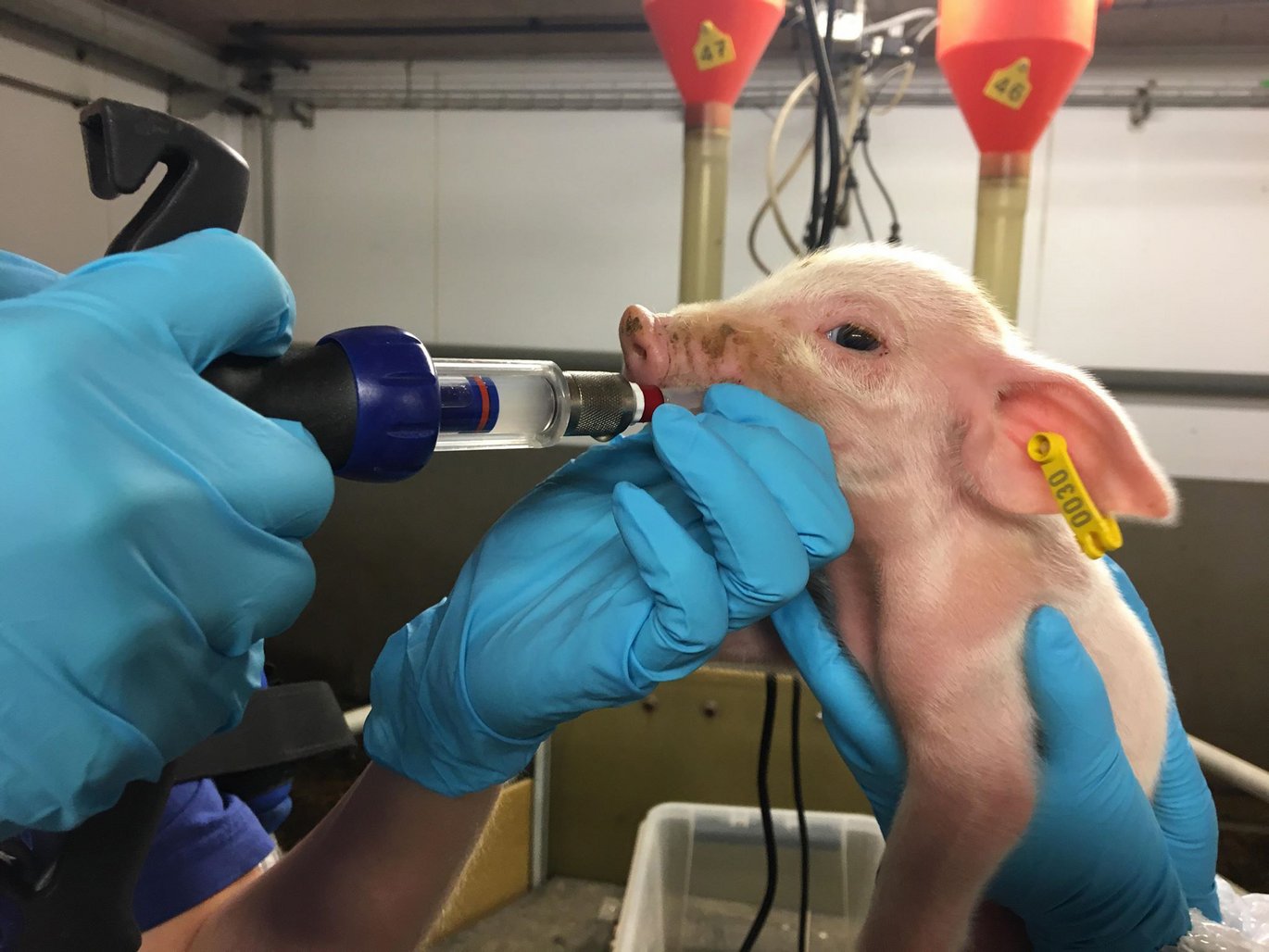Using probiotics for newborn piglets is a promising strategy ensuring robustness at weaning
In all probability, early allocation of probiotics to piglets can contribute to strengthening the pigs’ immune system so that they become more robust – both at weaning as well as in other situations in which the pigs are at high risk of developing intestinal infections. This is what new research from Aarhus University indicates.

Gut-related diseases in piglets are a big challenge for the Danish as well as the global pig industry
– both because reduced productivity and health cause a lower bottom line and because the use of antibiotics for treating these diseases poses a risk for developing resistance to antibiotics.
A good beginning of life is the key to success
The neonatal period has been described as a period with physiological plasticity where interruptions can lead to immune- and metabolic-related diseases later in life. However, this period is also considered an opportunity for being able to affect the microbial ecosystem in the intestine in a way so that it stays healthy and balanced in the long run.
As maturation of the immune system is directly affected by the presence of bacteria in the intestine, it is interesting to examine whether administration of healthy bacteria in the neonatal period, like probiotics, can make the pig more robust so that it can cope with weaning without developing diarrhoea. Therefore, the overall purpose of a PhD project conducted at Aarhus University was to develop a probiotic product which can be administered early in the pig’s life with the objective of developing a healthy ecosystem in the intestine with a long-term positive effect.
Specially selected probiotic strains prime the pig’s ecosystem
In the project, four probiotic strains which complimented each other’s positive effects were selected for a product targeting newborn piglets. Early inoculation of the probiotics, consisting of the strains L. rhamnosus, E. faecium, B. breve and B. longum subsp. infantis, was examined in two animal experiments:
- The first experiment focused on the effect of early inoculation of probiotics to piglets on the gut microbiota composition and immune modulations.
- The second experiment examined the effect of administration of probiotics before weaning in piglets challenged with the pathogenic E. coli bacterium ETEC F18 post-weaning.
The results from the first experiment showed that early inoculation of probiotics to piglets changed the microbial diversity after weaning and after cessation of the probiotic administration. After weaning, pigs that were inoculated with probiotics had a higher expression of genes that are important to local immune reactions in the mucosa from the small intestine, whereas an acute phase protein (SAA) was downregulated. Furthermore, in the week after weaning, the prevalence of diarrhoea was lower in pigs that had been administrated probiotics early in life.
The results from the second experiment showed that the pigs that were inoculated probiotics before weaning and challenged with ETEC F18 after weaning had a lower prevalence of diarrhoea. Furthermore, significantly fewer pigs inoculated with probiotics early in life shed ETEC F18 and STb toxin in faeces compared to pigs (challenged with ETEC F18) that had not been administrated with probiotics. STb toxin is the toxin that ETEC F18 produces, causing diarrhoea.
It can be concluded that early inoculation of probiotics for piglets is a promising strategy increasing the piglet’s robustness towards weaning thus reducing the susceptibility to gut-related diseases after weaning. Future studies will examine more practical methods of application so that the concept can become an advantageous and practical solution for the farmer.
Facts about the project
FundingThe PhD project was funded by the Innovation Fund Denmark and Chr. Hansen A/S. |
PartnersAarhus Universitet and Chr. Hansen A/S |
Conflicts of interestResults from the PhD project are included in a patent application. |
Read moreLink to the full PhD thesis: |
ContactLea Hübertz Birch Hansen, |
